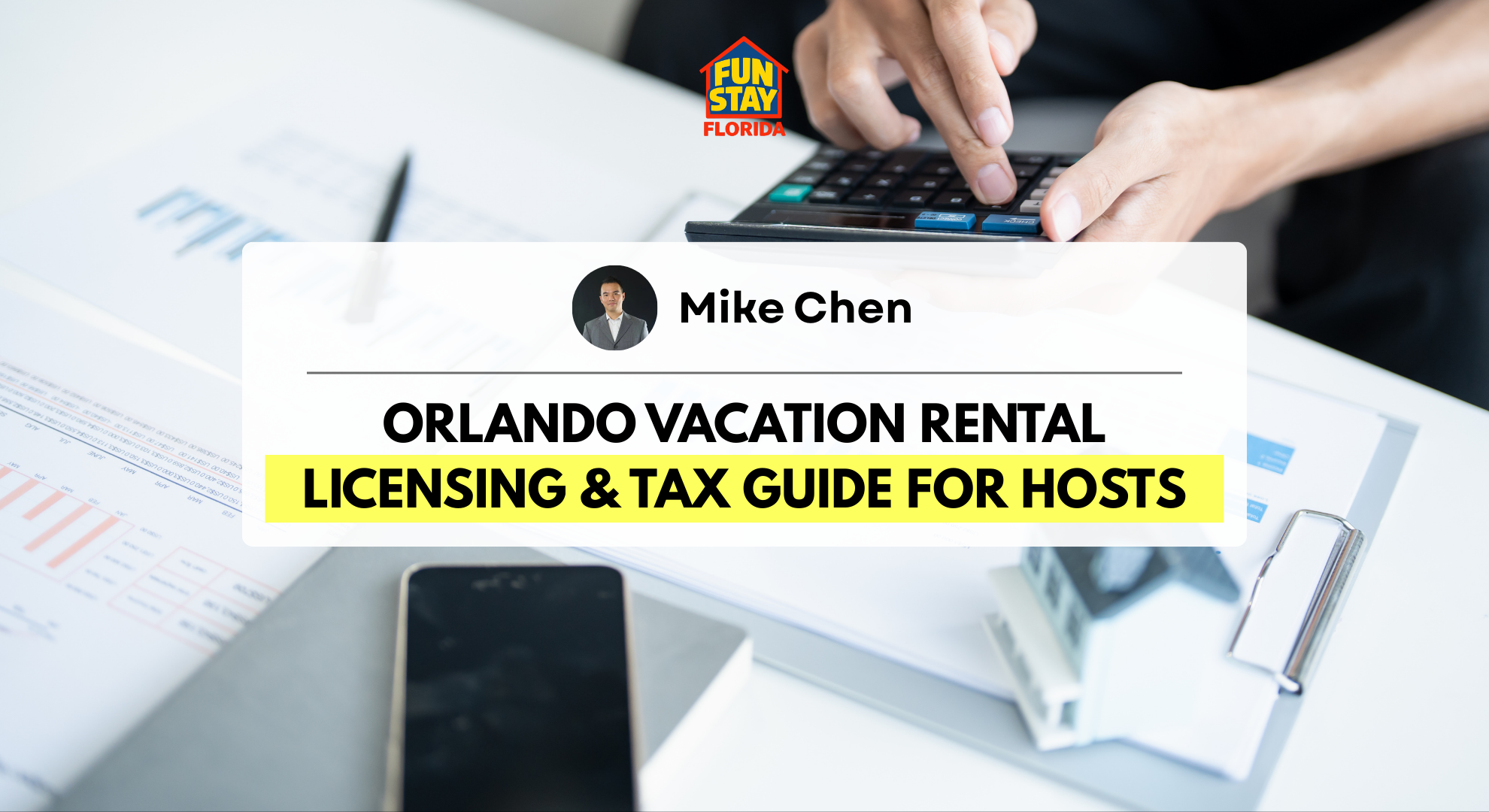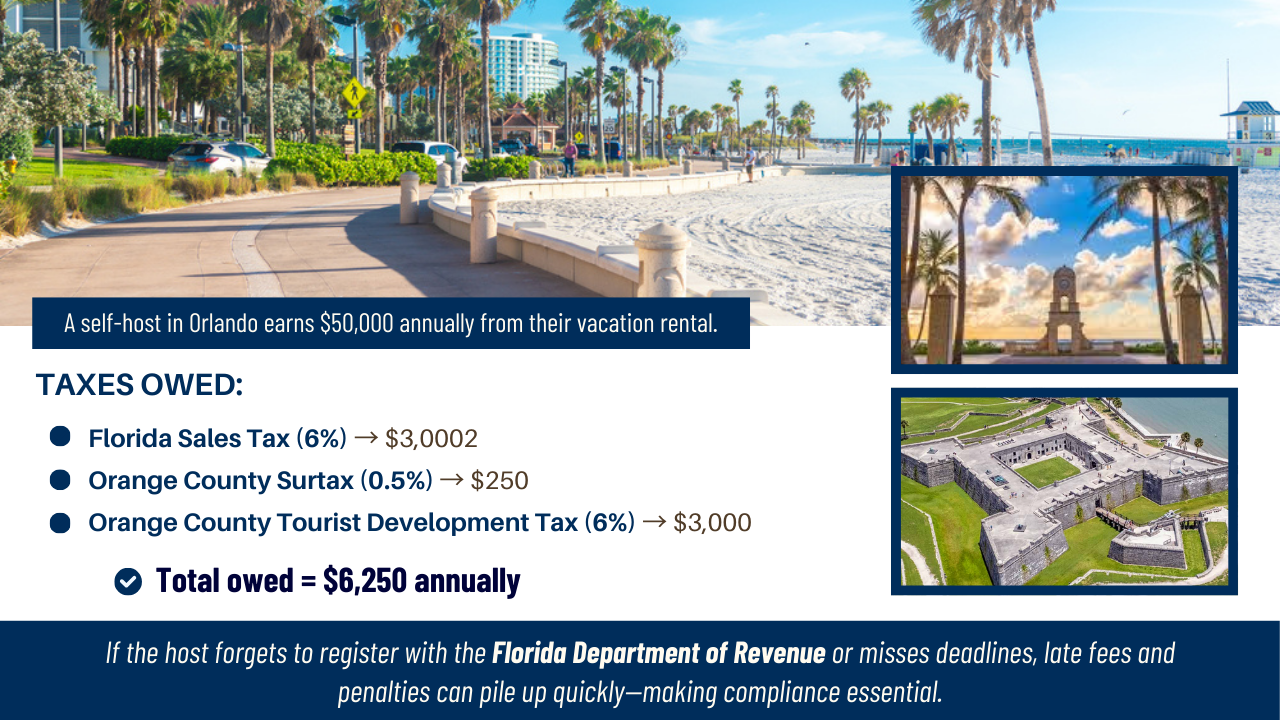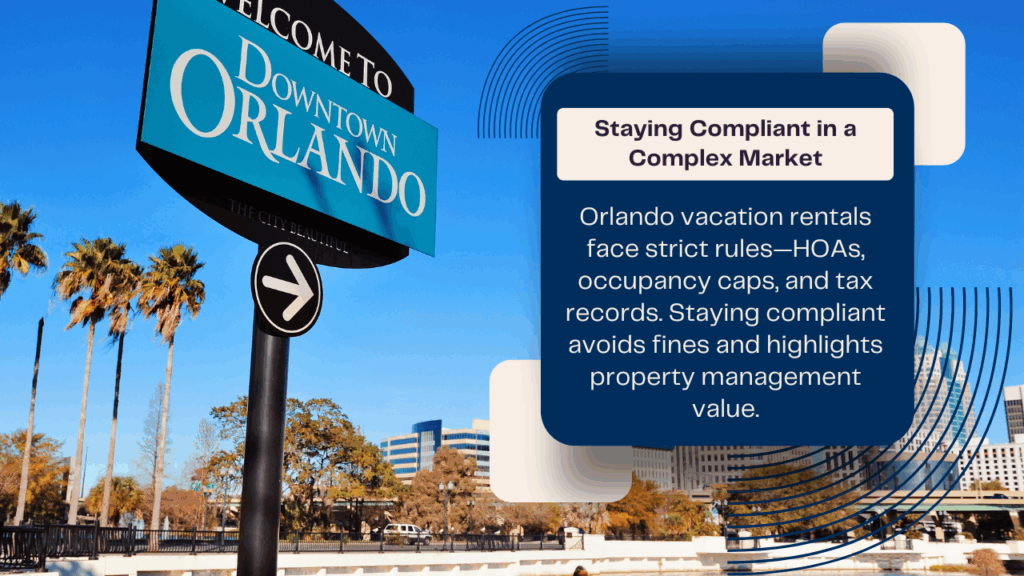
Owning a vacation rental in Orlando puts you at the center of one of the world’s top tourist destinations. But before you can start welcoming guests, it’s crucial to understand the city’s licensing and tax requirements. Navigating these rules can feel complex, but this guide breaks down exactly what you need to do to operate your Orlando short-term rental legally and successfully.
This post will walk you through the essential state and local requirements for your Orlando property, from getting the right licenses to understanding your tax obligations. With this information, you can ensure your business is compliant and avoid potential fines.

What Is a Short-Term Rental in Florida?
Under Florida law (Chapter 509), a property is considered a short-term or “transient” rental if it is rented out to guests for periods of less than 30 days, more than three times a year. This applies to single-family homes, condos, and small multi-unit dwellings.
If your property fits this description, you are required to obtain a license from the Florida Department of Business and Professional Regulation (DBPR). However, state-level licensing is just the first step. Orlando and Orange County have their own specific rules you must follow.
Licensing Requirements for Orlando Rentals
To operate a vacation rental in Orlando, you’ll need to secure licenses and permits at the state, county, and city levels.
State Licensing
- DBPR Lodging License: All short-term rental operators must obtain an annual lodging license from the Florida DBPR. This license needs to be renewed each year and displayed at your property. The DBPR offers two license types: “Vacation Rental – Condo” and “Vacation Rental – Dwelling” for single-family homes. You can apply online through the DBPR website.
Local & County Licensing
- City of Orlando Permit: The City of Orlando requires hosts to register and obtain a permit. The initial fee is $275, with an annual renewal fee of $125.
- Local Business Tax Receipt (BTR): You must apply for a BTR from the Orange County Tax Collector’s Office.
- Tourism Tax License: Orange County also requires a specific license for collecting tourism taxes on short-term rentals.
It’s important to remember that Orlando has strict zoning rules. In many residential areas, only “home-sharing” is permitted, where the owner lives on-site and rents out a portion of their home. Entire-home rentals are generally restricted to specific commercial and tourist districts.

Tax Requirements for Orlando Vacation Rentals
Once you’re licensed, you are responsible for collecting and remitting several taxes on your rental income. Platforms like Airbnb and Vrbo may handle some of these for you, but the ultimate responsibility falls on the owner.
The total tax rate on short-term rentals in Orlando is 12.5%, broken down as follows:
- Florida Sales Tax (6%): This statewide tax applies to all rental periods of six months or less.
- Orange County Surtax (0.5%): An additional county-specific sales surtax.
- Orange County Tourist Development Tax (TDT) (6%): Also known as the “bed tax,” this tax funds local tourism initiatives.
To manage these obligations, you must register with the Florida Department of Revenue to get the necessary tax identification numbers. This will allow you to collect and remit these taxes correctly to both the state and the county.

Staying Compliant in a Complex Market
Orlando’s regulations are some of the strictest in Florida, and the city actively enforces them. Operating without the proper licenses can lead to daily fines, so compliance is key.
Here are a few final tips:
- Check HOA Rules: If your property is part of a Homeowners Association (HOA), make sure you have their approval before renting it out. Many HOAs have their own restrictions on short-term rentals.
- Mind the Occupancy Limits: Orlando caps occupancy at two guests per bedroom, plus two additional people, with a maximum of four non-relatives in a single home-share rental.
- Keep Records: Maintain detailed records of your income, expenses, and tax payments. If you rent your property for more than 14 days a year, the IRS considers it a business, and you can deduct expenses like maintenance, management fees, and insurance.

Partner for Hassle-Free Orlando Vacation Rental Licensing
Navigating Orlando’s vacation rental regulations can be a full-time job. From licensing applications to tax filings and zoning laws, there’s a lot to manage. This is where partnering with a professional property management company can make all the difference.
An experienced local manager handles the complexities of compliance for you, ensuring your licenses are current, taxes are paid, and your listing follows all local ordinances. This frees you up to focus on what matters most, maximizing your rental income without the stress.
Frequently Asked Questions
Do I need a license to rent my Orlando property short‑term?
Yes. Make sure you obtain a Florida vacation rental license plus local Orlando and Orange County permits before renting.
What local permits are required in Orlando?
Orlando requires a city permit, annual renewal, an Orange County business tax receipt, and a tourism tax license.
What taxes must I collect from guests?
From your guests, you must collect Florida sales tax (approximately six percent), Orange County surtax (approximately 0.5 percent), and tourist development tax (estimated six percent), totaling around 12.5 percent from each guest.
Does Airbnb or Vrbo handle taxes for me?
These platforms may collect some taxes, but owners are ultimately responsible for correct registration, collection, and remittance.
Are there zoning or occupancy restrictions?
Yes, many residential zones only allow home‑sharing, and strict occupancy limits apply per bedroom.
What happens if I don’t comply with the rules?
Operating without proper licensing can lead to fines, penalties, and enforcement actions from city or county authorities.
Do I need to register for tax IDs?
Yes, you must register with the Florida Department of Revenue to collect, report, and remit required taxes.
Where does FunStay Florida situate itself here?
FunStay Florida helps you navigate these intricacies. From licensing applications to tax filings and zoning laws, this professional property management company makes the difference.

